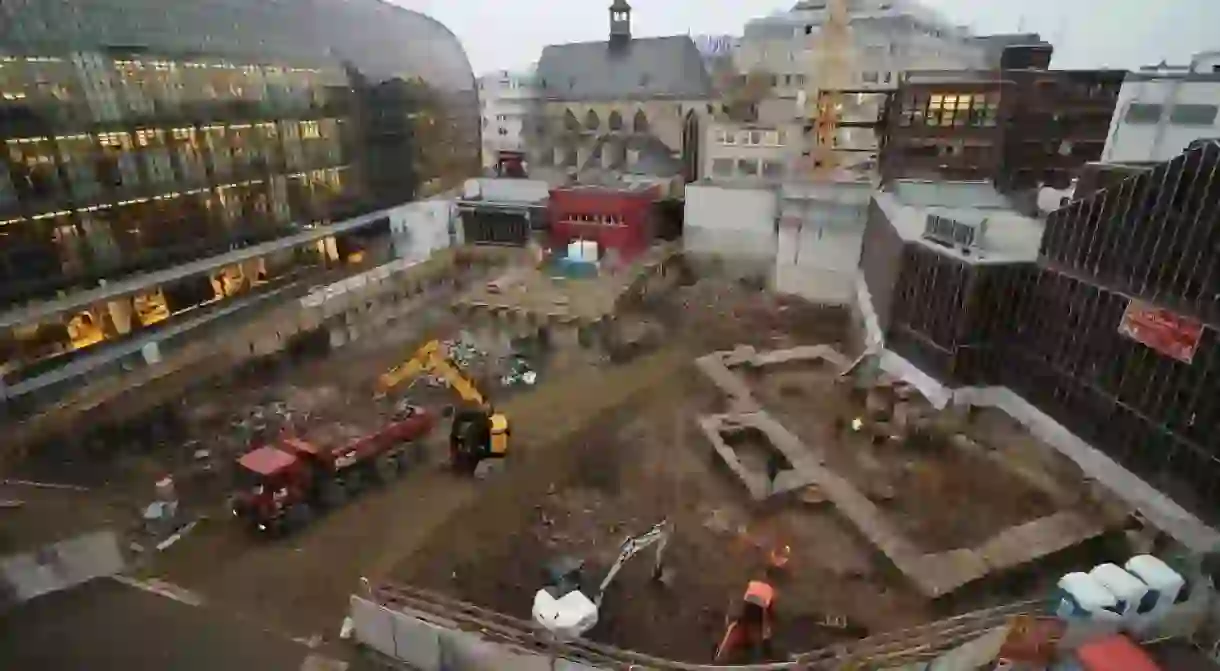An Ancient Public Library Has Been Discovered in Cologne, Germany

The remnants of a 2,000-year-old public library, believed to have housed up to 20,000 scrolls, have been discovered in Cologne, Germany.
The walls of Cologne’s oldest library were first uncovered in 2017 during an excavation of a Protestant church by the city’s Romano-Germanic Museum. The team on site knew the structure dated back to ancient Rome, the western German city having been founded as Colonia by the Romans in AD 50.

At first, archaeologists assumed the walls were part of something quite different given their epic size – 20m x 9m (65ft x 30ft) and two storeys high. “We thought they were the remains of a space for public gatherings,” Marcus Trier, director of the Romano-Germanic Museum, said in a statement. However, the walls had “unusual, cavernous structures”, niches of approximately 80cm x 50cm, which led the team to dig a bit deeper.
During their research, the archaeologists discovered that the niches were an ancient type of bookshelf or “cupboards for the scrolls”, as Dr Dirk Schmitz, another member of the museum team, described them. “They are very particular to libraries – you can see the same ones in the library at Ephesus.”
While similar in this respect, the Cologne library would have been smaller than the one at Ephesus in Turkey, which was completed in AD 117.
Although the exact number of scrolls that would have been stored here is unknown, Schmitz believes the quantity to have been “quite huge – maybe 20,000”. He called the discovery “really incredible”.

“It dates from the middle of the second century and is at a minimum the earliest library in Germany, and perhaps in the north-west Roman provinces,” he said. “Perhaps there are a lot of Roman towns that have libraries, but they haven’t been excavated. If we had just found the foundations, we wouldn’t have known it was a library. It was because it had walls, with the niches, that we could tell.”
The walls of this ancient house of knowledge will be preserved and accessible to the public through the cellar of the Protestant church community centre that is currently under construction.













